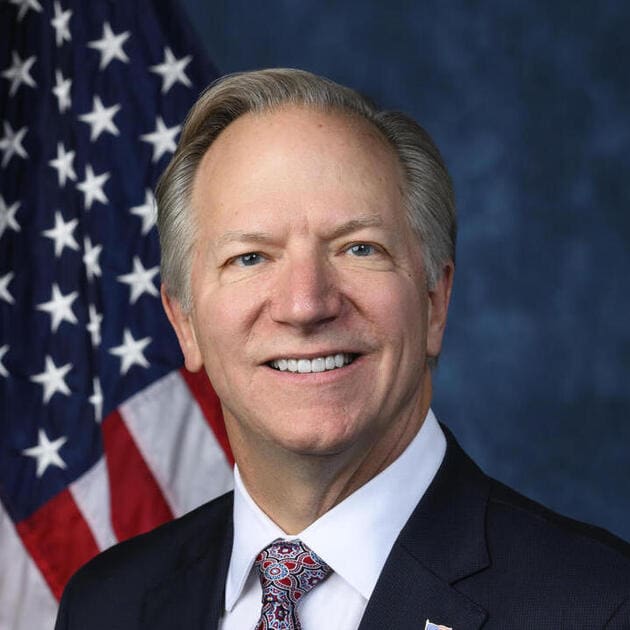Recently, Drs. Travis Miller, Chair of the Advocacy Council and J. Allen Meadows, Executive Director of Governmental Affairs, had the opportunity to catch up with Congressman Robert Onder, MD, FACAAI, (R-MO-03), who was elected to serve in the 119th Congress. The first part of the discussion appeared in the March 31 Insider.
In our final installment of the interview with Congressman Onder, Drs. Miller and Meadows ask questions specifically focused on allergy/immunology practice and advocacy for the specialty. Some edits have been made for clarity and ease of reading that do not impact the message.
Dr. Meadows: What should we tell our members to do to help ensure the future of allergy?
Dr. Onder: I think the future of allergy goes along with the future of independent practice. The Medicare cuts are devastating. You may ask, “Why am I, as a fiscally conservative Republican, advocating to spend more in this particular area?” I’m doing it because the cuts are penny wise and pound foolish. The cuts to physician reimbursement are behind the incredible, dramatic consolidation in health care over the last couple of decades. In the last twenty years, hospital reimbursement has gone up 47%. Physician reimbursement, accounting for inflation – so real terms – has gone down 26% or 27%.
The future of allergy should be very, very bright because what we do is cost effective. What we do has an effect on quality of life and on attendance at work and at school.
Allergies are serious conditions. With uncontrolled asthma, patients wake up every night and are short of breath in the morning. Our patients with rhinosinusitis have sinus pain, pressure, and headaches all the time. These symptoms have a constant effect on quality of life. Payers in the health care system should realize that and prioritize what we do, but in many cases they don’t. I’m cautiously optimistic that we can hold our own and even make some gains, but the trends over the last 20 years or so have not been good ones for our profession or for our specialty.
Dr. Miller: Dr. Onder, how did you feel your career as an allergist made you better prepared for your role as a member of Congress? What did you bring from the practice to Congress?
Dr. Onder: That’s a good question. I think physicians make good politicians and office holders. Medical doctors – allergists (and other specialists too) – take very complex material and/or information and translate it into language our patients understand. In Washington, DC, there are continuing resolutions (CR’s), anomalies, reconciliation bills, cloture rules and more. Congressmen translate all of that into language everyday people can understand – and it is sometimes one of our biggest challenges. The other thing physicians are used to doing is advocating for people. We advocate for our patients every day. Whether it’s with an insurance company or with a hospital, we do what is best for our patients. I think advocating for patients positioned me to be an effective Congressman.
Dr. Meadows: Is there anything specific College members should do right now?
Dr. Onder: Yes! I think your members should call, write, email – whatever form of communication they prefer – their Congress member about the Medicare Fee Schedule.
Right now, members of Congress are getting a lot of emails and calls from people about issues related to the Department of Government Efficiency and activities and initiatives of the Trump administration. Your call about the Medicare Fee Schedule really will stand out.
I would call, write or email and say, “Look, I urge you to support the Medicare Fee Schedule fix in the reconciliation bill.” Dr. Greg Murphy introduced a standalone bill for a permanent Medicare fee fix – indexing as well. But standalone bills are hard to get through. The Medicare Fee Schedule fix in the reconciliation bill is the best solution.
Dr. Miller: Payers are using various tactics to delay and discourage payment, for example, with step therapy, copay accumulators, excessive requests for records. What can we do? You already said, write to your Congress member – but what else can we do?
Dr. Onder: We’ve got to keep pushing the insurance companies too. The excessive request for records has gotten to be ridiculous. I don’t know about you, but, starting very early in 2024, every single claim for immunotherapy – 95165 – was automatically denied. Then we had to send records. For a while, insurance companies were telling us they wanted the entire medical record with every claim.
When we eventually got a meeting with someone at the insurance company and asked her why – if we’re giving the carrier everything they’ve asked for – why are they still not paying claims? She told us, “Well, you’re sending too much!”
Anyway, it’s just ridiculous. Most of our states have prompt payment laws. But, if an insurance company denies a claim for cause, that kind of stops the clock on the prompt payment laws. However, denying everything is just flat out fraudulent. It’s just a way of getting around the prompt payment laws.
We’ve got a lot of work ahead of us with prior authorization reform and timely payments. The health care system’s a mess. Reforming health care is one of the reasons I ran for Congress.
Drs. Miller & Meadows: We appreciate the work you’re doing. Thanks for speaking with us today. We’re looking forward to seeing you in Washington during our advocacy day in May.
As the first allergist in Congress in more than a decade, Dr. Onder is the voice for allergy. He is an advocate for our specialty, our patients and our practices.
The Advocacy Council – ADVOCATING FOR ALLERGISTS AND THEIR PATIENTS.



